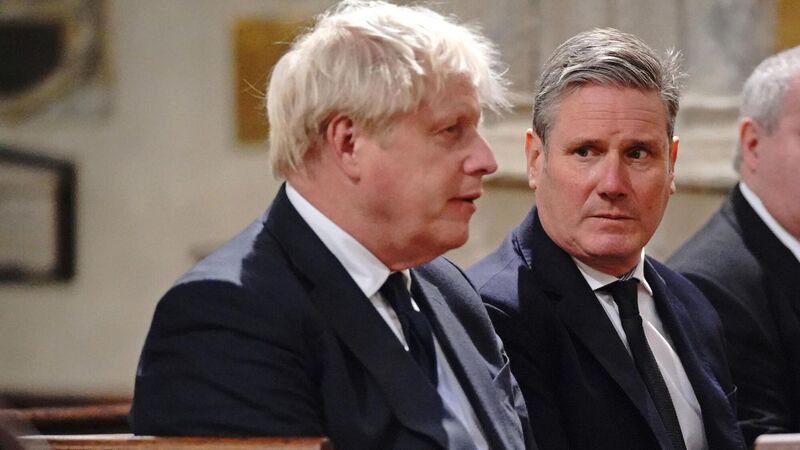Labour pains as Starmer leaves it late to connect with local election voters

Labour leader Kier Starmer, pictured with Boris Johnson, needs to put his focus back on the electorate.
Try from €1.50 / week
SUBSCRIBE
Labour leader Kier Starmer, pictured with Boris Johnson, needs to put his focus back on the electorate. Picture: Jonathan Brady/PA Wire
The local elections in Britain on May 5 will be an anxious time for Conservative candidates, but it will also be an opportunity to assess just how Kier Starmer and Labour are connecting with ordinary voters.
The Partygate scandalrumbles on and any other prime minister would probably have resigned by now, but Boris Johnson has decided that his defence is to claim that he must ‘do better’ and win back the trust of the people.
Already a subscriber? Sign in
You have reached your article limit.
Annual €130 €80
Best value
Monthly €12€6 / month
Introductory offers for new customers. Annual billed once for first year. Renews at €130. Monthly initial discount (first 3 months) billed monthly, then €12 a month. Ts&Cs apply.
CONNECT WITH US TODAY
Be the first to know the latest news and updates
Newsletter
Sign up to the best reads of the week from irishexaminer.com selected just for you.
Newsletter
Keep up with stories of the day with our lunchtime news wrap and important breaking news alerts.
Newsletter
Sign up to the best reads of the week from irishexaminer.com selected just for you.
Saturday, February 7, 2026 - 7:00 PM
Saturday, February 7, 2026 - 5:00 PM
Saturday, February 7, 2026 - 5:00 PM
© Examiner Echo Group Limited